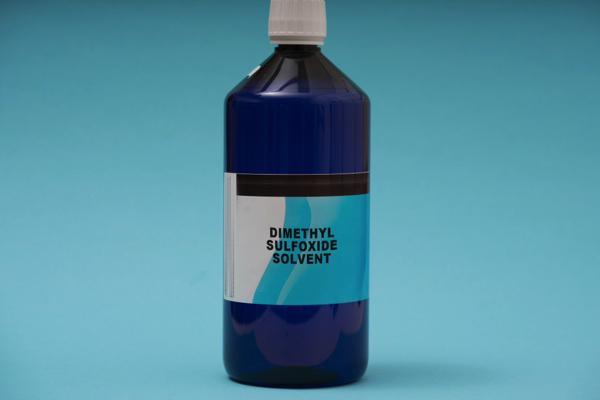 Parler
Parler Gab
Gab
- Health and Human Services Secretary Robert F. Kennedy Jr. declares microplastic pollution a public health crisis, linking it to dementia, cancer, and neurological disorders.
- Microplastics contaminate food, water, and human organs, with studies showing their presence in 99% of seafood and brain tissue.
- Ultra-processed foods are a major source of microplastic exposure, contributing to mental health issues like depression and anxiety.
- The Trump administration’s plan includes tax incentives for sustainable packaging and stricter regulations on toxic plastics, countering decades of corporate lobbying.
- Microplastics begin harming humans before birth and may contribute to chronic diseases, requiring systemic policy changes to reduce long-term risks.
The invisible invasion
Microplastics, which are particles smaller than 5mm, permeate nearly every facet of modern life. Over nine billion tons of plastic have been produced since 1950, with more than half manufactured since 2004. Most degrade into microplastics, contaminating ecosystems and human bodies alike. Research cited by Kennedy shows 99% of seafood samples contain microplastics, while studies confirm their presence in brain tissue, the colon, and other organs. The health consequences are staggering. Microplastics disrupt cellular function, trigger inflammation, and may cross the blood-brain barrier, potentially accelerating neurodegenerative diseases like Alzheimer’s. “Recent findings show these particles can accumulate in alarming quantities,” said Dr. Nicholas Fabiano, a psychiatry resident at the University of Ottawa. A growing body of research highlights ultra-processed foods (UPFs) as a major vector for microplastic exposure. UPFs—including chips, candy, processed meats, and frozen meals—account for more than 50% of caloric intake in the U.S. Their packaging and industrial processing make them particularly prone to contamination. For example, chicken nuggets contain 30 times more microplastics per gram than unprocessed chicken breasts. “Ultra-processed foods have been linked to adverse mental health through inflammation, oxidative stress, epigenetics, mitochondrial dysfunction and disruptions to neurotransmitter systems,” noted Dr. Wolfgang Marx of Deakin University. “Microplastics appear to operate through remarkably similar pathways.” Studies correlate UPF consumption with depression, anxiety, and sleep disorders, all of which are conditions now suspected to be exacerbated by plastic toxicity.Rewards and regulations
The Trump administration’s strategy aims to overhaul industry incentives. Companies adopting biodegradable or reusable packaging could receive tax breaks, while those relying on harmful plastics face stricter oversight. Kennedy emphasized that existing regulations fail to address the scale of contamination, calling for updated safety standards for food-contact materials. Critics argue corporate lobbying has delayed action for decades. Plastic producers have long framed recycling as a solution, yet less than 9% of U.S. plastic waste is recycled. The rest ends up in landfills or the environment, where it fragments into microplastics.A lifelong threat
The damage begins early. Microplastics have been detected in placental tissue and infant formula, suggesting exposure starts before birth. Over time, accumulation may contribute to chronic illnesses. Autopsies of coronary arteries reveal microplastics embedded in plaque, hinting at a role in cardiovascular disease. Similarly, aluminum, which is common in cookware and processed foods, has been found in elevated levels in Alzheimer’s patients. Consumers can reduce risks by avoiding UPFs, using glass or metal containers, and filtering water. However, systemic change requires policy shifts. “The Trump administration will fix the incentives and stop this toxic cycle,” Kennedy pledged. Microplastics represent a silent epidemic, woven into the fabric of modern convenience. Kennedy’s announcement signals a turning point, but real progress depends on holding corporations accountable and empowering consumers with truth. Sources for this article include: InfoWars.com X.com NYPost.com The-Scientist.comToxicologist reveals four simple ways to slash microplastics in your drinking water
By Cassie B. // Share
Charlotte Gerson expounds on her father’s revolutionary cancer treatment – the Gerson Therapy
By Kevin Hughes // Share
Nashville Mayor Freddie O’Connell faces federal probe for obstructing ICE operations
By Willow Tohi // Share
From lab solvent to lifesaver: DMSO’s potential for brain, heart, pain and cancer treatment
By Olivia Cook // Share
Governments continue to obscure COVID-19 vaccine data amid rising concerns over excess deaths
By patricklewis // Share
Tech giant Microsoft backs EXTINCTION with its support of carbon capture programs
By ramontomeydw // Share
Germany to resume arms exports to Israel despite repeated ceasefire violations
By isabelle // Share










